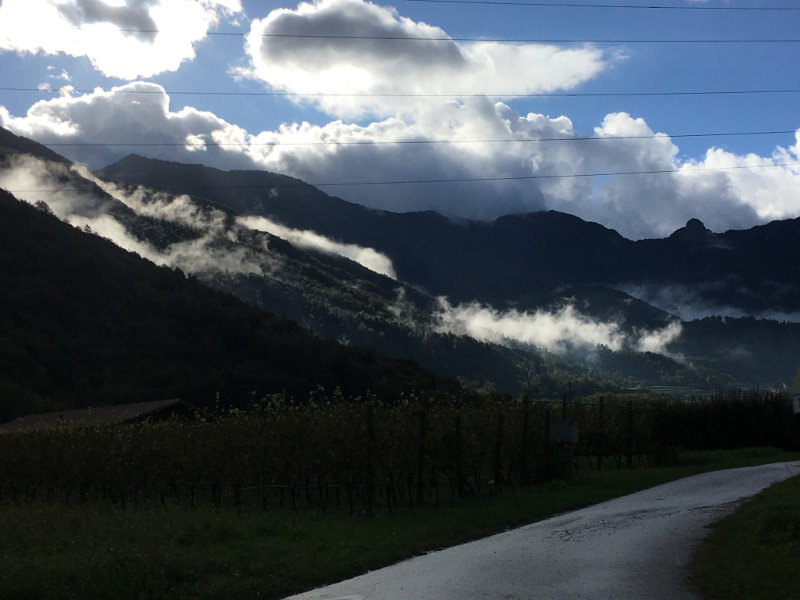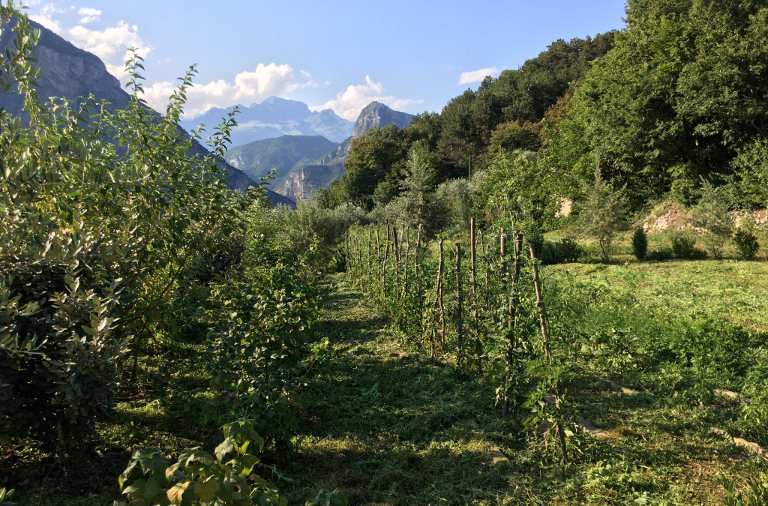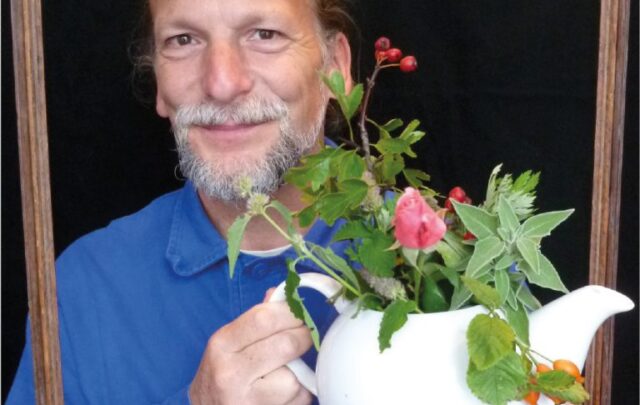Ed. note: This article first appeared on ARC2020.eu. ARC2020 is a platform for agri-food and rural actors working towards better food, farming, and rural policies for Europe. This is part of a series of Letters from the Farm. Read more letters from Chiara’s farm here.
****
We are back on Chiara Garini’s forest farm at the foot of the Italian Alps. Three years in, her mushroom farm and forest garden is at a crossroads: should she expand or diversify? In any case Chiara is determined to bring utopia into her business plan, and tells us about an exciting new development on the farm…
Temperatures today are again close to zero. But the snow in the last days has finally started to melt after weeks pretty much spent in an unusual peace, with lots of snow and inevitably limited social interactions.
Leaving aside the moments of loneliness and concerns due to the current pandemic situation, I had the chance to take a good amount of time for the necessary evaluation and (re) design of our farm enterprise.
Planning for utopia
As I wrote in previous letters multidisciplinarity is crucial for managing a newborn farm.
This time of the year is when economic skills are needed, to evaluate past year performances and work on the business plan for the coming years. I do not really enjoy this task as the economic burden puts a lot of pressure on me. Models are not always an easy tool. However I know this evaluation is fundamental. It is actually very useful to understand the pitfalls and strengths of our past and present decisions.
Starting a new farm from scratch and dealing with the reality of food production is not easy at all. It is hard to find a balance between personal objectives (with the amount of utopia they often come with) and the harsh reality of production and marketing.
However it is really great to be a part of this in first person and to deal with the challenge of finding the best tradeoffs!
Each passing year I realize how we evolve, have more hands-on information and actual data collected, which allow us to correct our estimates, thus improve our planning and decision-making process.
Basic principles and visions are not to be forgotten though. When using economic models to plan it is easy to be led only by economic purposes. In my opinion though, one of the major risks of failure for a small family farm is to lose motivation. So personal aspirations, as well as the initial “utopia”, are to be taken into consideration as well.

Expand or diversify
After three years of forest shiitake cultivation we can be proud to have established from scratch a farming system that even if small is economically sustainable. By this I mean that we manage to cover all the costs including working hours and also have a revenue from selling the fresh mushrooms.
However in order to get a satisfying economic dimension to maintain a family, the crossroads is clear. Either expand production – or diversify.
In our case we already are in a plan of expansion of the number of shiitake logs in production. But we know there is a limit to this expansion due to the available land, resources and personal ambitions.
The industrial logic of expanding production while seeking to lower the costs, thus seeking the cheapest labour, does not suit us.
When our project was in the embryonic stages, much motivation and initiative came from gastronomy and agroecology perspectives. A good amount of “off-the-grid” utopia was there as well!
But most of all what pushed us a few years ago to undertake this life project was the curiosity and care towards food, from its deeper origin of farming to its multifaceted possibilities of cooking. We wanted to be part of this process. Dealing firsthand with the wonderful complexity that lies behind the simple act of eating. This complexity includes several paramount themes, from environmental impact to nutrition.
The concept of diversity has been leading our choices as we see its potentialities both in agriculture and diet. For this reason we are following the beautiful path of agroforestry, as both in forest farming and in forest gardening practices diversity is key.

Cooking up new business
After three years of full-time dedication to farming, we are learning by doing and this equips us with better skills and the necessary realism. The initial naivety is giving way to more thorough considerations. Now we know better the foods we are able to grow and we also have better insights about the market.
In recent months we did not manage to sell the entire dried mushroom production by Christmas – that was too ambitious on my side! But, as the farm website and e-shop is under construction, we are having some results selling to local organic shops and GAS (solidarity consumer groups).
After careful evaluations it became clear to us that even if we did manage to build a successful activity with the shiitakes this is not enough for us and, as I said earlier, we are not going to invest more than our limit in this single culture.
Therefore we are now working hard to add a new micro-restaurant to our farm. Cooking our farm ingredients not only is a way to diversify and add more values to our products, thus increasing our economic performance, but is also something that belongs to us personally.
Drying mushrooms surely is a good way to spread the sales over the summer months. But after this past year it is clear that it does not add sufficient value to our product. While we will keep drying a premium amount of fresh mushrooms, only with a further cooking service we can aim to pay off the new farm building we invested in, which will be ready in a few months.
Having the means to process and directly serve our products as dishes is a good way to let people taste and get to know this novelty. It can also be an easier way out to the market for the numerous small and diversified productions from our growing forest garden (vegetables, herbs, fruits).
Coming to the end of these first two months of 2021, I have beautiful and challenging perspectives in front of me! The current crisis and incertitude, especially for the restaurant and tourism sectors, are surely not very encouraging. I want to keep my moral high for future times though I’m looking for some extra determination and self-confidence in order to initiate such enterprise and make it flourish.






